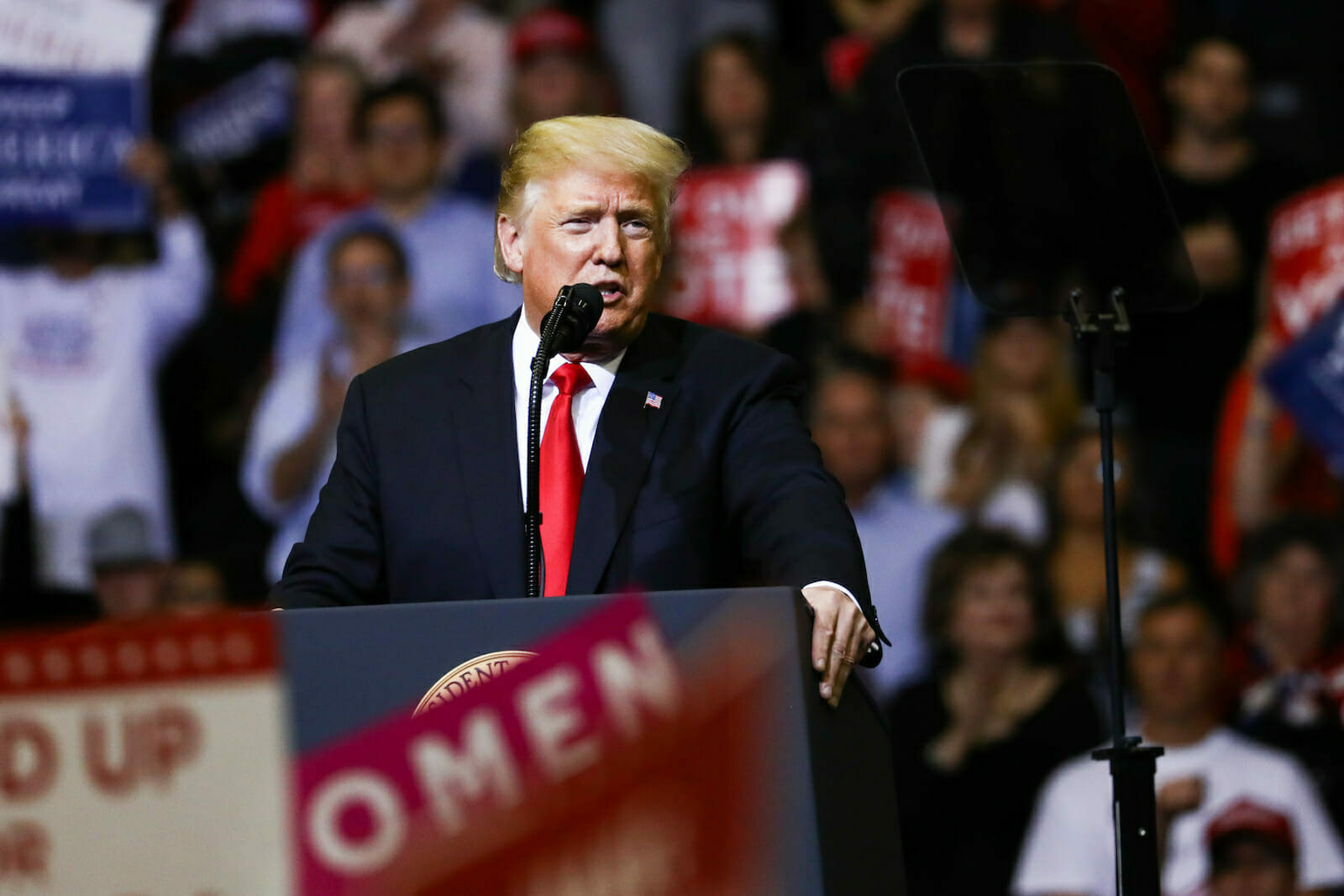
Politics
Congress, Trump, and U.S. Foreign Policy
With Democratic Party control of the US House of Representatives, most of the speculation is about how they will check Donald Trump’s domestic policy or use their investigatory powers to probe executive branch criminality or perhaps impeach the president. Neglected, yet equally important, is how Congress may influence Trump’s foreign policy. While Congress has imposed some limits on Trump in this area such as mandating Russian sanctions and expressing disapproval of the way he handled the Khashoggi murder, for the most part, they have given him a free hand to direct American foreign policy. This hands-off approach potentially will change.
Trump’s foreign policy record is well known. He pulled the US out the Paris Accords, the Trans Pacific Partnership and the Iran Nuclear Agreement. He has withdrawn the US from UN Human Rights Council, moved the US embassy in Israel to Jerusalem, sought a Muslim travel ban, tightened up on immigration, restricted political asylum, and continues to demand a wall along the US southern border. He has also announced troop pullouts in Syria and Afghanistan, initially threatened war with North Korea, engaged in tariff and trade wars with China, praised Vladimir Putin and Kim Jong-Un and fought with Angela Merkel and Emmanuel Macron. He rejects liberal democratic interventionism as a guiding principle of US foreign policy, preferring nationalism and has given us the definite impression that he is indifferent to human rights.
US Presidents have significant leeway and authority over foreign policy. They have been given that authority both through the Constitution and congressional legislation. In United States v. Curtiss-Wright Export Corporation (299 U.S. 304, 1936,) the US Supreme Court declared that whatever constitutional powers limit presidents domestically, they have more authority to act in foreign affairs.
Youngstown Sheet and Tube v. Sawyer (343 U.S. 579, 1952) also known as the “Steel Seizure” case, may be one of the most influential cases on foreign policy in the Court’s history—at least it has become so. While the Court struck down President Truman’s effort to nationalize the steel industry in order to avert a strike and the interruption of steel production during the Korean War, Justice Jackson’s concurring opinion described a tripartite division of presidential power in foreign affairs depending on whether the chief executive is acting alone or with or against congressional approval.
Presidents from Lyndon Johnson to George Bush cite it to support their military ventures, especially when they can point to congressional resolutions endorsing their actions. It seems to suggest, following Curtiss-Wright, that Congress can augment presidential power in foreign affairs by authorizing the chief executive to act. Finally, in Dames & Moore v. Regan (453 U.S. 654, 1981), the Court upheld President’s Carter’s authority to resolve the Iran hostage crisis and make private claims against the Iranian government. Collectively, these three cases and others suggest that presidents have broad authority over foreign policy.
Yet this power is not unlimited. Textually, Article I of the Constitution gives Congress more foreign policy authority than the president, if they opt to use it. The problem has been that Congress over time has abdicated much of its authority. Trump’s incoherent if not destructive (to many observers) foreign policy decisions gives Congress the occasion to act.
Congress has at least four broad powers it can use to control US foreign policy–budgetary, statutory, investigatory, and advice and consent. The House and the Senate can use the power of the purse to specifically fund or refuse to pay for various Trump foreign policy initiatives. It could refuse to fund covert or military activities, or not fund his wall. Second, Congress could impose statutory obligations on the president to fund or provide certain programs, fill diplomatic posts, withdraw or limit discretion to impose tariffs or sanctions or constrain his ability to affect immigration. Third, congressional investigatory authority can force the president to be more accountable and disclose actions or information he is undertaking. Finally, the Senate’s advice and consent role can check presidential appointments and treaty actions. Many of the powers that Congress has to check the president can be imposed even in the face of a veto or if the Democratic House and Republican Senate do not agree. Particularly, withholding budgetary authority or using its investigatory power can be accomplished unilaterally by the House.
Congress had the authority to check Trump’s international agenda and one can expect that it will. Reigning in this aspect of the Trump presidency has been one of the ignored consequences of the 2018 elections. But control of US foreign policy, specifically over several issues such as China, Korea, trade, immigration, and military matters, will be one the areas where Congress and Trump will clash for the next two years.
